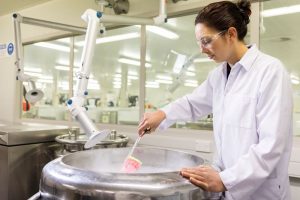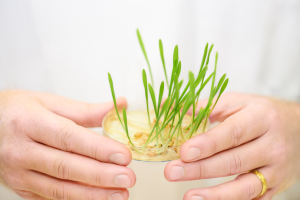Fostering talent, shifting mindsets, and addressing sustainability challenges are keys to the future success of Aotearoa New Zealand’s food and fibres sector, according to new research from AGMARDT.
In December 2021 we worked with Colmar Brunton’s KANTAR to seek input from the sector to help us better understand the opportunities and challenges of the food and fibres sector in New Zealand.
There were 229 people who responded to the KANTAR AGMARDT Applicant Experience and Perspectives Survey – a mix of past and present AGMARDT applicants and potential applicants.
AGMARDT General Manager Lee-Ann Marsh says one of the strongest themes to come out of the research is that the future success of food and fibres depends on attracting, retaining, and unleashing the talent of our best and brightest.
 “It’s exciting that we’re seeing huge talent potential across the board including in underrepresented groups in agriculture such as younger people, women and Māori agribusiness. Everyone is interested in how they can make a difference and where they can get involved.”
“It’s exciting that we’re seeing huge talent potential across the board including in underrepresented groups in agriculture such as younger people, women and Māori agribusiness. Everyone is interested in how they can make a difference and where they can get involved.”
The research also highlights a growing awareness that innovation needs to be market connected and spread across the entire value chain, rather than confined within traditional areas and roles as it has been in the past.
One of the top barriers to innovation within the food and fibres sector as identified in the research, is navigating the funding landscape itself, (43% of respondents). Other barriers include costs (38%) and pulling the right people and skills together (34%).
The research also identified opportunities for the sector to prioritise, including supporting the growth and development of agri tech (40%), promoting, and developing more premium products (38%) and developing sustainable options using natural resources (30%).
Sustainability is seen as the most critical challenge to the sector’s future success (43%), followed closely by ‘short-termism’ and reactive and narrow thinking (34%) and attracting and retaining talent (32%). 
For Lee-Ann, it was surprising to see how strongly the issue of mindset came through as a critical challenge. She says this indicates that people recognise the need to think beyond the here and now to ensure the sector is well positioned for the future.
AGMARDT will be using the input from the research along with other insights to develop an action plan for achieving our strategy.
“We certainly see that strategic partnerships will play a bigger role in uniting the industry and in helping to uncover new ways of tackling complex challenges.
“We already partner with many groups and organisations working collaboratively for the whole food and fibres sector, particularly in the leadership and capability space. We are one of several funders of Rural Leaders, Agri Women’s Development Trust and we support groups such as Te Hono and initiatives such as Taiao Ora Tangata Ora.
“We will continue to work with trusted partners as well as seek out new ones to unlock impact at scale.”
Click here to read the AGMARDT KANTAR Perspectives Survey Summary Report Feb 22
